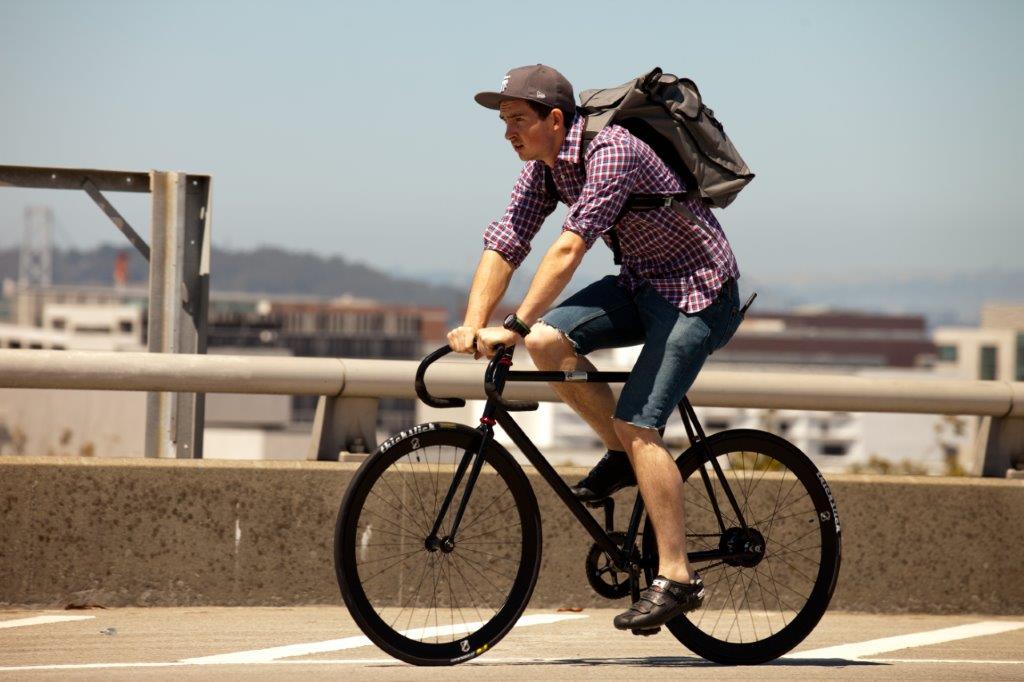Global consulting giant Deloitte has published its Technology, Media, and Telecommunications Predictions for 19 years, an annual insight that has become an eagerly awaited resource for the technology and media sector.
However, the 2020 edition has caused a stir right across the mobility sector too, because alongside artificial intelligence and new satellite technologies they concluded that the bike is one of their select 10 technologies for 2020. Boldly the report suggests that commuter cycling could double in many cities as soon as 2023 as new technologies make bikes easier to ride, more publicly accessible and safer.
The report itself has been widely reported in cycling media, but CIE has taken a deeper look into the technologies predicted to be critical for cycling growth. The news is exciting, because Deloitte has identified a very similar list to our early priorities chosen in 2019. Electrification, new digital tools and use of data will become the main priorities for the cycling industry sector in the next years. Cycling Industry Europe is at the forefront of these topics thanks to the creation of expert groups that facilitate sharing of expertise, collaboration and communication between the industry sectors that deliver the outcomes of the Deloitte report. Expert Groups on bike share, cargo bikes and ITS are just some of the several working areas in which CIE is leading the sector.
We are delighted to announce that Paul Lee, Head of Global TMT Research at Deloitte will give a keynote speech about the background behind the report at CIE 2020 Summit taking place on 28 April in Brussels.
Among the innovative bicycle-related technologies, Deloitte’s report leads with electrification and the development and spread of e-bikes. Deloitte sees more growth largely to recent improvements in lithium-ion battery (LIB) technology, in line with our projections in 2019 which suggested growth up to 30 million units by 2030 in Europe. Among the e-bikes, cargo bikes are particularly relevant. Electric cargo bikes, in fact, have the potential to become a serious alternative to vans and trucks for last-mile delivery in cities. Studies and researches show that in the future cargo bikes could replace vans in 32% of delivery trips and in 50% of service trips.
The increase in cycling will depend also on the increase of bike sharing. The sharing system makes bicycles available at the point of demand. Thanks to electrification, bike sharing will become more appealing in the future, removing its main drawback: the weight of the standard bikes used for bike share. Creating effective business models for electrification of shared bikes is one of the main discussion points for CIE’s Bike Sharing Expert Group.
Intelligent Transport Systems (ITS) provide the connectivity that gives cycling its place in the real technology revolution. The report says that thanks to cyclist-specific smart mobility platforms based on aggregated user data, cyclists can have real-time information about road conditions, building sites, unexpected incidents and time estimation of journeys. In future accelerometers, gyroscopes and action cameras can be used to detect a crash, thus helping to make cycling safer. Deloitte also highlights that digital innovation will have a longer-term effect by enabling better infrastructures for cyclists because urban planners can benefit from data and analytics to develop bicycle-friendly solutions.
E-bike, bike share, cargo bike, new innovations and shared data sources. Yes, we agree with Deloitte, these are critical for the future of our industries. Join Cycling Industries Europe to make sure your company has a voice in the future of cycling.
Share on Linkedin Share on Facebook Share on Twitter Subscribe to our newsletter